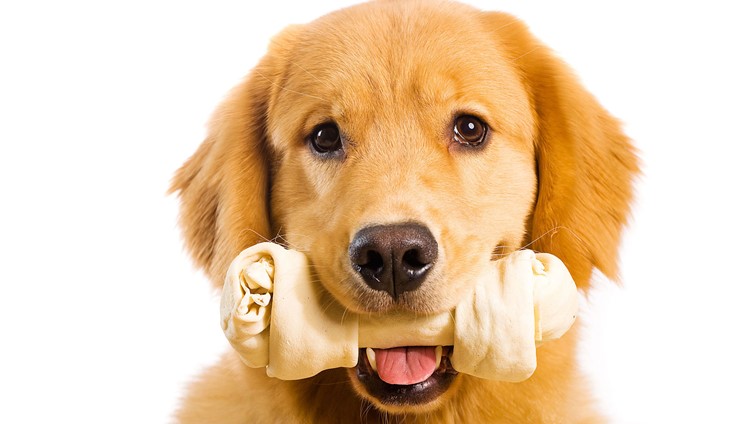How often do dogs need to pee? It may seem like a basic question, but it’s an important topic that dog owners should be aware of.
How often do dogs need to pee? – is one of the most common questions that we receive.
If you’re a new dog parent, you may find yourself wondering how often should I take my dog out to pee, or how long you can be away from your house until your canine friend can no longer wait.
Understanding your dog’s toilet habits is important, so we decided to help you by providing an in-depth answer on – How often do dogs need to pee?
How Often Do Dogs Need To Pee?
Dogs should have a pee break anywhere from 3 to 5 times per day.
Good to know also: Do not make your dog wait any longer than 6-8 hours between pee walks.
Some dog breeds can hold their pee longer, but in perfect conditions, dogs should do out every 4 to 6 hours, even often if they are of smaller size.
Ignoring your dog’s urinary needs might result in urinary complications or chaos inside your home.
Plus, holding urine for too long, can increase the risk of the following conditions:
- Urinary tract infections
- Bladder infections
- Urinary stones
- Kidney problems
To sum up: How often should a dog pee? At least three times per day in identical intervals.
Factors Determining How Often Do Dogs Need To Pee
Just like every human’s urination habits will be different, each dog’s need to pee will vary as well.
Your dog’s need to empty their bladder can be affected by many factors, and may even change throughout their life stages.
Although there is no absolute and definite frequency of how often a dog pees, these factors can affect how often your dog will need to go outside to pee:
- Breed
- Age
- Weight
- Water intake
- Overall health and medical conditions
- Medications
- Potty training
- Activity level
The average healthy dog will produce between 10 and 20 ml of urine for each pound of body weight per day.
Smaller breeds and puppies usually need to urinate more frequently than larger breeds and older dogs, because smaller dogs have smaller bladders relative to their overall body size than larger breeds.
Now that you know the factors that can affect your dog’s urination habits, let’s dive into the details behind an increased need to pee.
How Often Is Too Often For A Dog To Pee?
Now that you know how often do dogs need to pee, you can guess that anything above that is too much.
Dogs can pee too much, and it is usually a sign to contact your veterinarian.
If your dog goes out more than 3 to 5 times per day, know that his need to pee is significantly increased for some reason.
Here are common factors that will affect pee frequency.
1. Breed
If you think about it, it makes perfect sense as to why certain breeds can hold it a bit longer than others. Think about how much a dog’s bladder can vary in size from breed to breed.
A Chihuahua’s bladder is much smaller than that of a Great Dane, so if they are chugging water, they may need to urinate more often.
To understand better how breed affects a dog’s need to pee, compare different dog breeds and
see where your dog stands when it comes to toilet breaks.
2. Age
You’ve probably heard that your ability to hold your bladder dissipates as you age. The muscles that help to prevent incontinence weaken over time and this is true of dogs as well.
As a dog ages, you may find them asking to go outside more often, or even find some accidents around the house from time to time. This counts for younger dogs and puppies as well.
Puppies will typically have to outside more often due to learning their potty training habits and their developing ability to hold their bladder.
We’ll discuss the specifics on puppies further in the article and how long they can hold it based on age.
3. Weight
Studies show that excessive body fat can result in increased abdominal pressure.
This can lead to your dog’s need to go outside and urinate more often.
If you have a puppy, it can help to learn just how big your puppy will get so you can know what to expect in terms of toilet breaks.
Once again, if you choose a small size dog such as Havanese, you will discover that three toilet breaks per day aren’t enough.
How often do small dogs need to pee? As a general rule, small-size dogs will pee at least five times per day.
How long can a small dog hold its bladder? If needed, they might hold their pee for between 10 to 12 hours, but that doesn’t mean that they should, nor that they will.
To prevent any toilet breaks with small-size dogs, focus on providing indoor dog potty for Havanese, or any other small-size dog that you decide to welcome into your life and home.
4. Water Intake
Just like with humans, if a dog is drinking a lot of water, they will need to urinate more often.
If it seems like your dog is chugging water and urinating more than the average pup, it’s best to have them seen by your veterinarian to rule out any medical conditions causing increased thirst.
Will water intake affect how often do dogs need to pee? Yes. Just like in humans, increased urination might be directly linked to drinking excessive amounts of water.
Dogs may drink extra water during playtime so make sure that you provide additional walking before sleep.
5. Medical Conditions
Certain medical conditions in dogs can result in an increased need to pee.
Some of these conditions include diabetes, Cushing’s disease, kidney disease, and other conditions that cause a dog to drink more.
6. Medications
There are a few medications that can give your dog an unquenchable thirst that results in an increased need to pee.
Some of these medications include oral steroids, seizure medications, heart medications, and others.
7. Potty Training
If you find that your dog is having accidents around the house and have ruled out any medical cause, then your dog may be struggling with potty training.
This can be challenging for puppies, young dogs, newly adopted dogs, and dogs in a new environment.
Consistency and patience are key when it comes to potty training, and don’t forget to be there to praise your pet and give it some treat when it does a good job.

What Are Some Signs That Your Dog Needs To Urinate?
Now that you know how often dogs need to pee and what can cause frequent urination, you may wonder how you know that your dog needs to go outside and pee.
Some signs that a dog may need to go outside for a bathroom break include:
- Standing at the door looking outside
- Crying at the door
- Fidgeting and not sitting still
- Appearing restless
- Crying or whining
- Pawing at you
- Barking
- Sniffing around
If you see dogs displaying any of the above behaviors, they may need to go outside for a bathroom break.
Knowing these signs will help you understand better your dog’s urinary needs and how often do dogs pee in fact. Moreover, this way you will know how often to take the dog out to pee.
This is especially handy when you have a busy schedule and need to organize your time around your dog’s needs.
How Long Can A Puppy Hold Their Bladder?
When a puppy is growing and in the potty training process, it will need to be taken outside more often than an adult dog would.
Aside from teaching them where they need to go each time they have the urge to go, is how much more a puppy will need to pee.
As a dog ages, it will develop the ability to hold it for longer periods. Puppies just have to pee more often than adults.
So how long can puppies hold a pee?
- 8 weeks old: They need bathroom breaks every 2 hours
- 12 weeks old: They can typically hold it for 4 hours
- 16 weeks old: They can typically hold it for 5 hours
- 20 weeks old: They can typically hold it for 6 hours
- 24 weeks old: They can typically hold it for 8 hours
While each puppy is different, these are some general guidelines to stick to when it comes to their bathroom trips outside.
How To Provide The Best Pee Breaks To Older Dogs
As a dog age, they can begin to have a more difficult time holding their bladder.
This can be due to medical conditions that are associated with old age, medications they may be taking, as well as weakened bladder muscles that help to prevent accidents.
If you have an older dog, there are a few ways that you can cater to their urinary habits as they age.
- Make sure you let them outside more often for bathroom breaks.
- Keep an eye on their water intake, as increased thirst and urination can point to other problems.
- If you will be away from home for a few hours, offer them pee pads to be able to pee inside if they can no longer hold it.
- Be aware of any accidents they have in their bedding so you can properly clean up after them.
- Always have them seen by your veterinarian if you notice any abrupt changes in urination.
- Try your best to not be away from home too long so they won’t have to hold their bladder for a long period.
- Consider installing a doggy door to the backyard if you have to be away from home for long periods throughout the day.
Urinary Complications To Be Aware Of
Urinary complications are fairly common in dogs, and they may experience a common urinary infection or complication at least once throughout their lives.
If your dog is peeing more frequently than normal, you should talk to your vet, as it could be a symptom of a health issue.
Urinary health should be taken seriously in dogs, so it’s important to be aware of the symptoms you should look out for:
- Frequent urination
- Increased thirst
- Straining to pee
- Blood in urine
- Strong odor in urine
- Change of urine color
- Whining when urinating
- Inability to urinate
These symptoms can indicate simple urinary tract infections (UTIs) that can be resolved with antibiotics, all the way to serious problems such as bladder stones.
Since there is no way to be sure just how serious of a problem these symptoms are a result of, it’s important to always see your veterinarian ASAP if you notice any of the above symptoms in your pup.
Summary
After reading this article you should have a better understanding of how often dogs pee, how often do dogs pee in different life stages, and how many times does a dog need to go out.
All in all, after reading this article you should get the answer to a question – How often should I let my dog out to pee?
Your dog’s urinary habits may seem basic but can be a great peak at their health.
Make sure to offer your dog the recommended potty breaks outside each day, and keep a close eye out for any changes in their urination.
Frequently Asked Questions On Dogs And Their Urinary Needs
1. How Often Should I Let My Dog Out To Pee?
Adult dogs should go outside three to five times a day.
Whenever you are in doubt about this one (how many times does a dog need to go out), just contact your veterinarian. Another option is to carefully monitor your dog, as see how many times per day he wants to go out.
As a general rule, puppies should go out more frequently, while adult dogs need on average three toilet breaks.
This can be covered with regular walks and an additional one for exercise. Do not forget that dogs need a regular exercise regime to keep their joints in order.
Good to know: Most veterinarians will recommend a maximum break of between six to eight hours between toilet walks
2. How Long Can Dogs Comfortably Hold Their Pee?
This may shock you, but young dogs can hold their pee for up to 12-12 hours if needed. This is the case with very trained dogs.
Although they can hold it for this long, it doesn’t mean that they should hold it for so long.
It may lead to urinary infections or even display separation anxiety. One toilet walks every 8 hours should be a minimum.
Is it normal for a dog not to pee all day? No, if your dog doesn’t pee all day there is an underlying serious issue, and you should contact your veterinarian.
3. Should I Wake My Dog Up To Pee At Night?
You should wake up your dog to pee at night only if he is ill. Otherwise, you should let your dog sleep.
Dogs will wake you up and push you to go outside in case of an emergency, especially if they suffer from diarrhea.
Should you wake your puppy during the night to pee? In general, this may occur only when you are puppy training Fido, or dog pees in a crate.
4. How Often Do Dogs Need To Poop?
On average, dogs will poop once a day. Some dogs may poop up to two or three times per day and that can be normal.
It all depends on the dog’s needs, as well as nutrition, exercise regime, and water intake.
If your dog starts pooping more often than usual, or you notice any bloody trace in the dog’s stool, make sure that you contact your veterinarian.
5. How Often Do Puppies Need To Pee At Night?
Older puppies can hold it while sleeping.
If your puppy is under four months old you will need to make one trip halfway through the night. Set up an alarm for 4-5 hours after your puppy’s bedtime.






















